#ElectricCars
Report: Biden to Use Wartime Powers to Boost EV Battery Production
U.S. President Joe Biden is said to be considering utilizing wartime powers to spur domestic electric vehicle battery production. The administration reportedly wants to add the necessary raw materials to the Defense Production Act (DPA) penned at the start of the Korean War in 1950.
Originally designed to give the federal government more control of the U.S. economy (especially in regard to raw materials) throughout the Cold War, the law has also been leveraged by the Department of Defense to advance new technologies starting in the 1980s. In 2011, Barack Obama invoked the act to force telecommunications companies to provide detailed information to the Commerce Department’s Bureau of Industry and Security. Donald Trump would later invoke the DPA to identify an array of products deemed critical to national security as the trade war with China heated up, and then again to spearhead domestic production of materials and goods pertaining to the COVID-19 pandemic.
Are Electric or Combustion Cars Better at Weathering a Winter Storm?
Following the Virginia shutdown of Interstate 95 that left countless people stranded in freezing weather overnight earlier this month, there was a surprising amount of news coverage making offhand comments about how victims would have been better off if they all were driving electric vehicles (Ed. note — there was also this Washington Post op-ed in which the author worried that an EV would be a poor vehicle to be stranded in And this Vice rebuttal to that article). While it seemed an inopportune time to advertise for EVs, it’s an interesting premise and encouraged Car and Driver to conduct a head-to-head experiment between a Tesla Model 3 and Hyundai Sonata N-Line to see who could keep the cabin warm for the longest period of time when stranded.
Realistically, you’d be better off in whatever vehicle is yielding the heaviest fuel tank or least-depleted battery when traffic stops. But there are other factors to consider. Idling an internal-combustion car for extended periods of time is not recommended and doing so when totally snowed in could potentially trap harmful exhaust gasses if the exhaust is not kept clear. Meanwhile, EVs are notorious for having their battery chemistry altered by colder temperatures. This is especially true if they lack the relevant thermal management systems, resulting in the maximum range being diminished by as much as 30 percent.
Toyota Nearing Federal EV Tax Credit Quota
Toyota Motor Corp. looks to be the next automaker that will have exhausted its allotment of EV tax credits for the U.S. market.
While the quota for $7,500 rebates has already been reached by Tesla and General Motors, Toyota is closing in with 190,000 plug-in sales of its own. The government has limited federally backed incentives to just 200,000 vehicles per manufacturer. Once the Japanese manufacturer reaches that limit, credits go into a cool-down period where it can continue benefiting from the full sum six months after the relevant quarter ends. From there, incentives will be halved for the next two quarters until the company is no longer eligible.
Chrysler Going Electric By 2028, Airflow EV Introduced
Stellantis has announced plans to shift the Chrysler brand to an all-electric lineup by 2028, presumably because it doesn’t know what else to do with it anymore. Though, considering the make’s long and storied history, the change almost seems fitting.
When the French bought up Fiat Chrysler Automobiles from the Italians in 2021, the namesake brand had already been losing steam under the Germans. But they were adopting the company after years of mismanagement from Americans, who had taken the marque from being arguably the most luxurious and technologically advanced the United States had to one that had to be saved from bankruptcy by government intervention on more than one occasion. Suffice it to say, Chrysler has enjoyed some of the sweetest highs and pathetic lows imaginable. But it always seems to rise from the ashes thanks to some innovative decision that ultimately helps redefine the industry — which is why Stellantis is leading its own EV offensive by reviving the Airflow name.
Toyota Announces EV Strategy, Readies $70 Billion for the Cause
On Tuesday, Toyota Motor Corp. announced a commitment of 8 trillion yen ($70 billion USD) toward the goal of achieving carbon neutrality someday. Though the concept of any multinational manufacturing entity totally nullifying their carbon footprint seems kind of laughable, so we’ll be referencing this as another electrification strategy — which is still a big deal considering how EV averse Toyota has been thus far.
Despite being an environmental trendsetter with the Prius Hybrid, Toyota has been hesitant to formally commit itself to transition its lineup toward being reliant on battery power. However, President Akio Toyoda has just proudly confirmed that the Japanese automaker would be earmarking the funds for exactly that purpose, noting that the brand (along with Lexus) would be spending the money through 2030 to make sure its global sales of battery electric vehicles (BEVs) reach 3.5 million vehicles annually. Though the most enjoyable aspect of the release was the direct manner it was presented, with Toyoda-san being impressively honest about modern automotive trends.
Study Suggests Time Plays Important Factor in Repair Costs for EVs Vs ICEs
Since the hottest news surrounding the automotive industry today happens to be rolling updates about supply shortages, factory downtime, and how it’s not impacting manufacturing profits as much as anticipated, I’ve been diving back into studies and research pertaining to the future of the automotive industry. It’s a little more enjoyable for my own gray matter to process and might provide readers with a touch more to ponder than another story about how automakers are stalling production because an insufficient number of doodads were placed on a boat that’s waiting off the California coastline.
Earlier this week, we examined research exploring how much electric vehicles actually cost to run and that theme will persist. There’s a new study suggesting EVs boast lower repair bills than gasoline-driven alternatives. But there’s an interesting tipping point that occurs early in a vehicle’s lifespan that makes it happen. Before that, it’s cheaper on average to maintain something equipped with an internal combustion engine.
Study: Do EVs Really Cost Less to Run Than Internal Combustion Cars?
With the volume having been turned down on just about every business sector imaginable, automakers have spent most of this year explaining how supply chain shortages are impacting production and making promises about electric vehicles. However, the rhetoric surrounding electrification has gotten so aggressive that it’s fast becoming another contentious issue, leading to vicious arguments as people square up to take sides. Part of this is due to the enterprising way in which zero-emission vehicles are being marketed and subsequently embraced by world leaders that don’t know jack about the manufacturing or the environment. Much of the discourse surrounding electrification (pro or con) lacks nuance and leads to businesses promising whatever they can in an effort to obtain your unquestioning belief.
For example, EVs are frequently promoted as boasting substantially lower operating costs due to there being no reliance on liquid fuel. Though finding the truth actually requires one to make a comparative analysis while taking into account how, where, and what you’re driving. There’s even a new study out from the Anderson Economic Group (AEG) attempting to determine the true savings of swapping to an EV where the researchers ultimately decided gasoline-powered cars were actually easier on the wallet. However, that likewise requires loads of clarifying context and conditional factors.
New York to Ban Sale of Gasoline Vehicles After 2035
New York Governor Kathy Hochul signed into law a bill that effectively makes the sale of new gasoline-powered automobiles illegal within the state after 2035. On Wednesday, the state’s new governor took the brave step of copying California in deciding that all new passenger cars and light-duty trucks be zero-emission models within the next 14 years. Though she saw it as a totally original strategy necessary for stopping the horrors of global warming, which we now call climate change.
It’s also not technically her plan, as the State Assembly voted on the bill months before she took office with all Democrats and three Republicans voting in favor. It later passed the Senate in another party-dependent vote aided by the state’s Democratic majority.
NHTSA Cautions Against Leaving Chevrolet Bolt EVs Indoors
The National Highway Traffic Safety Administration (NHTSA) has issued an alert pertaining to Chevrolet Bolt owners, as the vehicles’ LG Chem battery packs could have a propensity to catch fire. On Wednesday, the safety organization recommended that the cars be left outdoors (ideally a healthy distance from anything flammable) and never left unattended while charging.
This defeats one of the largest perks of owning an electric vehicle (at-home charging), as customers will be required to buy extra-long cables and monitor their car outdoors for hours as it takes on energy. Owning a horse would be less work.
Opinion: EV Shift Will Require Philosophical Blend
A little under two weeks ago, yours truly wrote about President Joe Biden’s plans for cutting tailpipe emissions and helping to encourage the shift to electric vehicles.
I laid out three basic philosophies that are at play in the debate as to how best move consumers en masse from internal-combustion-engine cars to EVs.
Rare Rides: The Upcoming 2021 Rimac Nevera, Certainly Not Slow
The other day when Rimac merged with Bugatti to form Bugatti Rimac, your author learned Rimac’s latest product release was the hyper-fast, limited-run Nevera. So let’s check out an incredibly quick Croatian EV that’s one of the fastest production cars in the world.
Canadian Government Now Wants All Vehicles Zero-Emission By 2035
Emerald-Colored Glasses: Just How Green Are EVs?
As the resident sourpuss, I make it my business to complain about every industrial hypocrisy that crosses my path and the automotive sector has kept me so busy that there’s hardly any time left to address my own failings. Though I do have to confess that I sometimes feel guilty about how frequently I’m compelled to gripe about electric vehicles. Provided that you’re willing to work with their charging limitations and less-than-impressive ranges, EVs have a lot to offer even in their current state. But the way they’ve been marketed has been so consistently disingenuous that I often end my days on the cusp of a frustration-induced aneurysm.
The winds appear to be changing, however.
After years of watching the industry bang its head against the wall, the media seems prepared to shift its position. Accelerated adoption of pure electrics doesn’t seem to be happening and too many EV startups have ended up being little more than an opportunity for investors to throw away money. Increasingly fewer people ask me about battery-powered cars in a way that suggests true enthusiasm. Excitement has given way to dubiousness as more people have begun to ponder if electrics are really all they’re cracked up to be.
Rare Rides: The Very Obscure DKW Schnellaster Elektro-Wagon
Recently Rare Rides featured a very clean example of the DKW Schnellaster van from 1956. The front-drive and transverse-engine layout of the Schnellaster previewed in the Forties the basic format of the family minivan that would arrive over three decades later.
Among the standard Schnellasters produced, there was an even rarer variant: An electric version, as DKW experimented with the possibilities of early EV tech.
2022 Kia EV6: Right Down Broadway
New York City’s Times Square might be one of the most electrified places on the planet.
The place is festooned with electronic billboards and advertisements that run pretty much 24/7/365.
What better place for the unveiling of the 2022 Kia EV6?





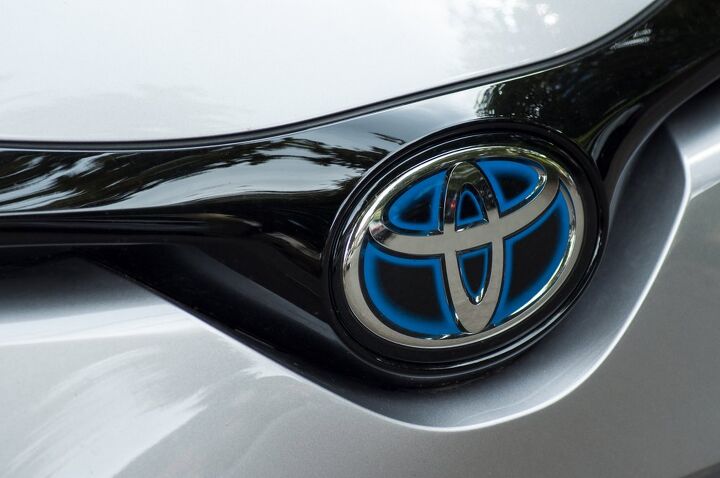

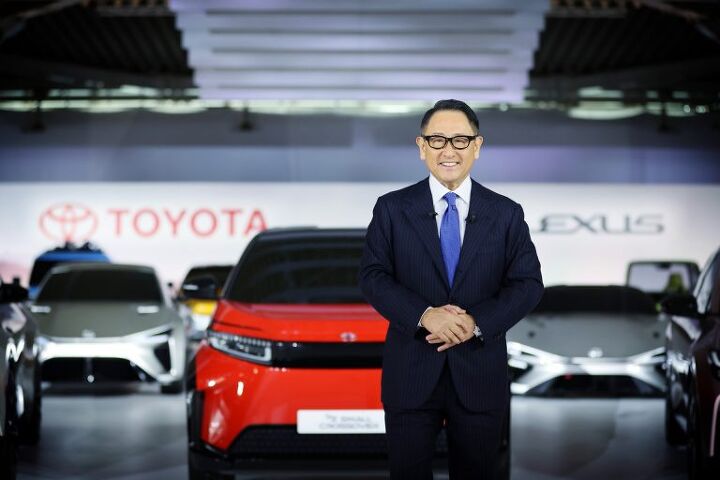
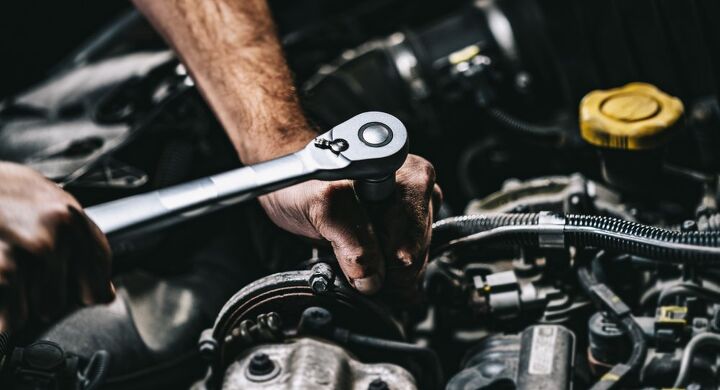


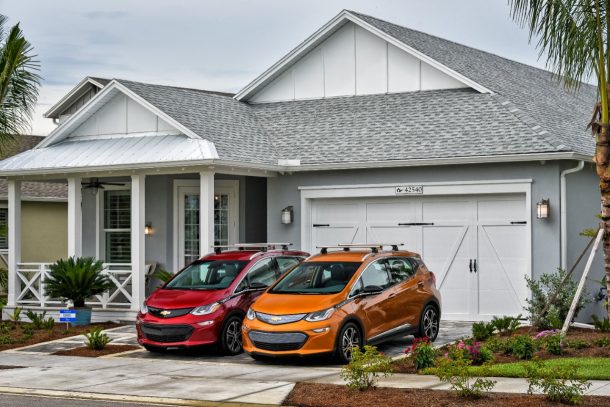

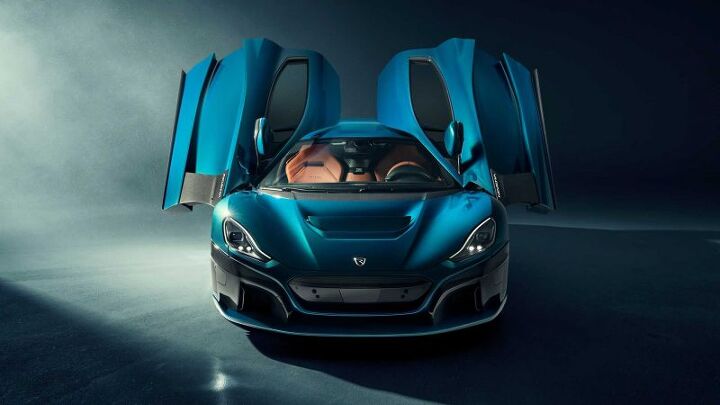


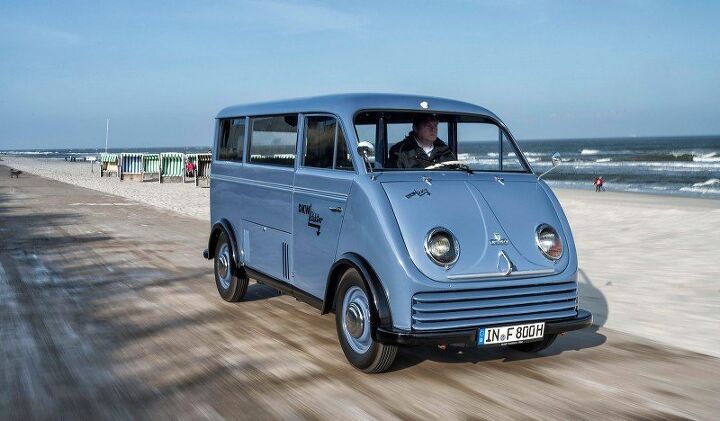













Recent Comments